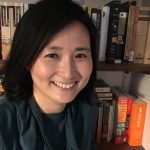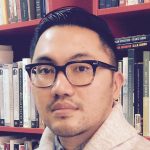 Donald S. Lopez, Jr.
Donald S. Lopez, Jr.
Institute Co-Director
Arthur E. Link Distinguished University Professor of Buddhist and Tibetan Studies; Department Chair; Michigan Society of Fellows Chair
dlopez@umich.edu
Website
Donald S. Lopez, Jr. received his Ph.D. in Religious Studies from the University of Virginia. His publications fall into four areas: Indian and Tibetan Buddhist philosophy, the history of the European encounter with Buddhism, the life and works of the Tibetan writer Gendun Chopel (1903-1951), and anthologies and reference works on Buddhism.
More
His recent books include The Lotus Sutra: A Biography (Princeton University Press, 2016), Strange Tales of an Oriental Idol: An Anthology of Early European Portrayals of the Buddha (University of Chicago Press, 2016), Buddhism: Norton Anthology of World Religions (W. W. Norton, 2015), and In Search of the Christian Buddha (with Peggy McCracken) (W. W. Norton, 2014). The Princeton Dictionary of Buddhism (co-authored with Robert Buswell) (Princeton University Press) won the American Library Association Dartmouth Medal for best reference work of 2014. In 1999, his book Prisoners of Shangri-La: Tibetan Buddhism and the West (University of Chicago Press) won the American Academy of Religion Award for Excellence in the Study of Religion. He has received fellowships from the National Endowment for the Humanities, the American Council of Learned Societies, the Getty Research Institute, and the Guggenheim Foundation. At the University of Michigan he was named an Arthur F. Thurnau Professor for excellence in undergraduate teaching and received the John H. D’Arms Faculty Award for Distinguished Graduate Mentoring in the Humanities. He was elected to the American Academy of Arts and Sciences in 2000.
 Youngju Ryu
Youngju Ryu
Institute Co-Director
Associate Professor of Modern Korean Literature
yjryu@umich.edu
Website
Youngju Ryu received her Ph.D. in Korean literature from University of California, Los Angeles in 2006. Her first book, Writers of the Winter Republic: Literature and Resistance in Park Chung Hee’s Korea (University of Hawai’i Press, 2015), examines the relationship between literature and anti-authoritarian resistance in South Korea.
More
Her second book, an edited volume titled Cultures of Yusin: South Korea in the 1970s (University of Michigan Press, 2017), broadens the scope of study to visual and material cultures. Ryu’s current project, After Torture: State Terror and Cultural Memory in East Asia, engages the history of torture in twentieth-century East Asia and traces the enduring legacies of state violence in contemporary East Asian literature and film, focusing especially on instances of anticommunist state terror in South Korea and Taiwan. At the University of Michigan, Ryu teaches courses primarily on Korean literature and popular culture. She has received the Class of 1923 Memorial Teaching Award in recognition of outstanding teaching.
 Varuni Bhatia
Varuni Bhatia
Assistant Professor of Hindu Studies
varunib@umich.edu
Website
Varuni Bhatia is a scholar of Hinduism who specializes in the study of Bengal. Her research interests span the themes of religion and modernity, cultural memory of religious figures, and middle-class religious expressions in colonial and contemporary India.
More
In her first first book Unforgetting Chaitanya: Vaishnavism and Cultures of Devotion in Colonial Bengal (forthcoming from Oxford University Press, New York), she attends to the transformations in Gaudiya Vaishnavism, a Bengali religious tradition originating in Chaitanya, a fifteenth century mystic and devotee of the Hindu deity, Krishna. She focuses on the role played by Bengali Vaishnava devotional traditions in the making of a modern Bengali identity in the colonial period. Her published articles deal with themes as varied as Hindu devotion (bhakti) and patriotism, hagiography and memory, and neo-liberal articulations of yoga in contemporary India.
 Deirdre De La Cruz
Deirdre De La Cruz
Associate Professor of Southeast Asian Studies; Associate Professor of History
ddelac@umich.edu
Website
Deirdre de la Cruz is an historian and cultural anthropologist of the Philippines, specializing in religion, visual culture, technological media, and Christian conversion in the colonial and post-colonial periods. She received her Ph.D. in Cultural Anthropology from Columbia University, and was a post-doctoral fellow in the Michigan Society of Fellows before joining the faculties of Asian Languages and Cultures and History at the University of Michigan.
More
She is also affiliate faculty in the Doctoral Program in Anthropology and History. Deirdre is the author of Mother Figured: Marian Apparitions and the Making of a Filipino Universal (University of Chicago Press, 2016) and is currently working on a project that draws together global occult movements, anti-colonial sentiment, and local healing practices in the turn and mid-twentieth-century Philippines. Her teaching interests include: gender and sexuality in Southeast Asia; the history of Christian conversion in Asia; spirit possession; contemporary Southeast Asian controversies; research methodology and writing on religion. Deirdre regularly teaches the Noli (as it is affectionately called) as a part of her introductory survey “The Philippines: History and Cultures.”
 Christopher L. Hill
Christopher L. Hill
Assistant Professor of Modern Japanese Literature
hillcl@umich.edu
Website
Christopher L. Hill earned a Ph.D. in Comparative Literature from Columbia University in 1999. He teaches and writes about the transnational circulation of ideas and literary forms with a special emphasis on modern Japan. His first book, National History and the World of Nations, traces the evolution of narratives of national history in nineteenth-century Japan, France, and the United States.
More
The book shows that the writing of national history, while responding to domestic ideological challenges and each country’s position in geopolitics, reflected rhetorical and narrative strategies shared across the globe.
Hill currently is working on two projects. The first is about the naturalist novel, a form of literary realism that crystallized in France in the 1860s and spread rapidly around the world. The travels of naturalism changed literatures from the Americas to East Asia . The forms and themes of the naturalist novel morphed as it moved, making its history a chance to develop new methods for studying “world literature.” He has published two articles and is completing the manuscript for a book on the topic.
Hill’s second project is on Japanese writers in the “Bandung moment” of the 1950s and 1960s, when decolonizing countries aspired to form political and cultural relations that did not pass through Europe and North America. A group of Japanese writers participated eagerly but awkwardly in this effort, because Japan had colonized or invaded many of the countries concerned. Hill has published an article on the novelist Endô Shûsaku’s engagement with the work of the Martiniquan anti-colonialist Frantz Fanon and has given several lectures on postwar Japanese writers and decolonization.
At the University of Michigan, Hill teaches courses on the literature and cultural history of modern and contemporary Japan.
 Allan E. S. Lumba
Allan E. S. Lumba
Assistant Professor Department of History; Postdoctoral Scholar Michigan Society of Fellows
lumba@umich.edu
Website
Allan E. S. Lumba received his Ph.D. from the Department of History at the University of Washington. He is currently at work on his book manuscript, “Monetary Authorities: Economic Policy and Policing in the American Colonial Philippines,” which charts the historical intersections and tensions between race, knowledge, sovereignty, and the capitalist market in the United States and the Philippines.
More
Previously, he served as Global American Studies postdoctoral fellow at Harvard University’s Charles Warren Center from 2013 to 2015. He is the past recipient of numerous research support including the Fulbright-Hays Dissertation Research Grant, Foreign Language Areas Studies Fellowships, and multiple university grants and fellowships from the University of Washington. He has also served as resident fellow at the Newberry Library in Chicago and University of Michigan’s Bentley Library. His teaching experience and interests spans across myriad fields, including: U.S. in the World, Southeast Asian history, Asian American and Ethnic studies, and Comparative World history.
 Christi A. Merrill
Christi A. Merrill
Associate Professor of Comparative Literature; Associate Professor of South Asian Literature and Postcolonial Theory
merrillc@umich.edu
Website
Christi A Merrill is an associate professor of South Asian Literature and Postcolonial Theory in the Departments of Comparative Literature and Asian Languages and Cultures at the University of Michigan, and author of Riddles of Belonging: India in Translation and other Tales of Possession (Fordham University Press, 2009).
More
Her translations of the stories of Rajasthani writer Vijaydan Detha, Chouboli and Other Stories, were supported by a National Endowment for the Arts Literature Fellowship, co-published by Katha (New Delhi) and Fordham University Press (New York), and won the 2012 A.K. Ramanujan Award for translation from the Association of Asian Studies. She spent the 2013-14 school year in India on a National Endowment for the Humanities/American Institute of Indian Studies Senior Fellowship researching her latest book project, Genres of Real Life: Mediating Stories of Injustice Across Languages. This scholarship is linked to her current project translating Kausalya Baisantry’s Dohara Abhishap [Doubly Cursed], a Dalit woman’s “life story” in Hindi that offers an eloquent protest against the discrimination Baisantry experienced because of her (untouchable) caste and gender. Merrill’s articles have appeared most recently in Blackwell’s Companion to Translation Studies, Routledge Handbook of Translation Studies, boundary 2, Teaching Literary Texts in Translation, and World Literature Today. She has been invited to give lectures around the world on South Asian literature in translation, postcolonial theory, and the study of Human Rights, including at the University of Iowa (as the inaugural lecture series by alumni), Kent State University (as the annual Shreve lecture), State University of New York – Buffalo (as part of their Juxtapositions lecture series), at Jadavpur University in Kolkata (as the 2013-14 Fellow at the Department of Comparative Literature’s Centre for Advanced Study), and at Cornell University in Ithaca, New York (in 2010 in the annual Rabindranth Tagore Modern Literature Lectures Series).
 Xiaobing (Max) Tang
Xiaobing (Max) Tang
Helmut F. Stern Professor of Modern Chinese Studies and Comparative Literature
maxtang@umich.edu
Website
Xiaobing (Max) Tang received a BA in English language and literature from Peking University in 1984 and then took his Ph.D. in Literature from Duke University in 1991. Before coming to Michigan in 2008, Professor Tang taught at the University of Colorado, Boulder, the University of Chicago, and the University of Southern California. His current research focuses on modern Chinese literary and visual culture.
More
The courses he teaches at the University of Michigan are at both graduate and undergraduate levels, ranging from introduction to modern Chinese culture, modern Chinese poetry, to narratives of the Bildungsroman tradition and theories of the avant-garde. His publications include
Chinese Modern: The Heroic and the Quotidian (Duke University Press, 2000),
Origins of the Chinese Avant-Garde: The Modern Woodcut Movement (University of California Press, 2008),
Multiple Impressions: Contemporary Chinese Woodblock Prints (University of Michigan Museum of Art and the University of Washington Press, 2011), and
Visual Culture in Contemporary China: Paradigms and Shifts (Cambridge University Press, 2016). His latest publication is an essay on the
street theater movement in twentieth-century China.
 Donald S. Lopez, Jr.
Donald S. Lopez, Jr. Youngju Ryu
Youngju Ryu Varuni Bhatia
Varuni Bhatia Deirdre De La Cruz
Deirdre De La Cruz Christopher L. Hill
Christopher L. Hill Allan E. S. Lumba
Allan E. S. Lumba Christi A. Merrill
Christi A. Merrill Xiaobing (Max) Tang
Xiaobing (Max) Tang
